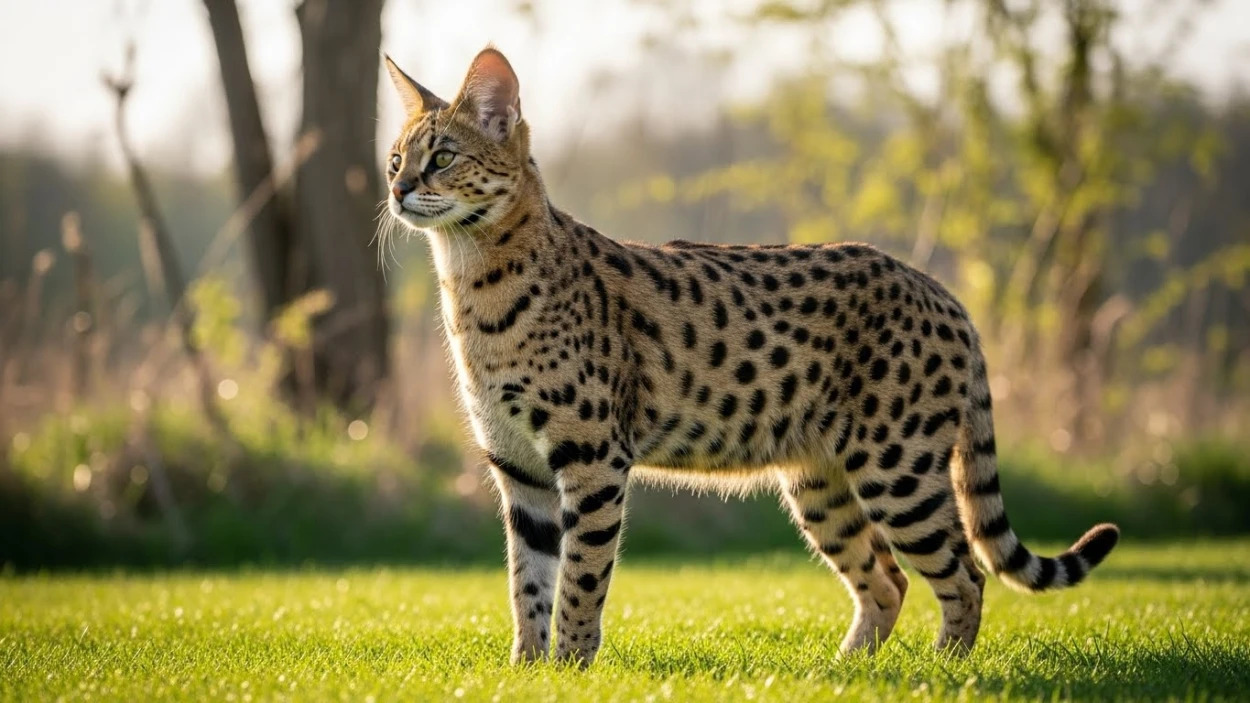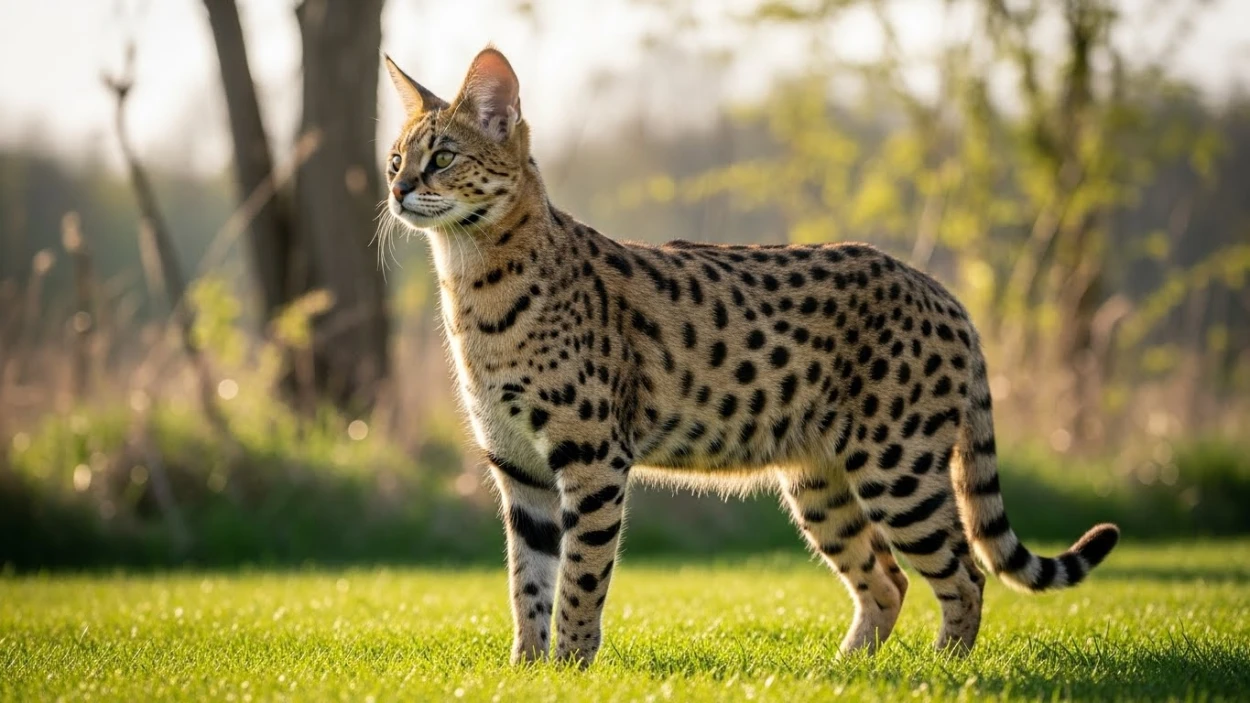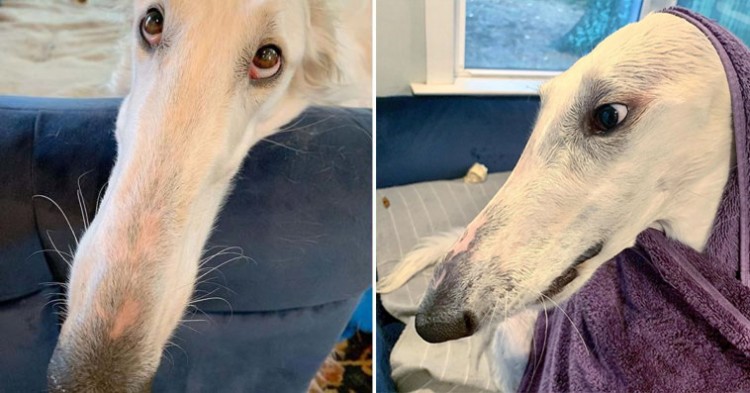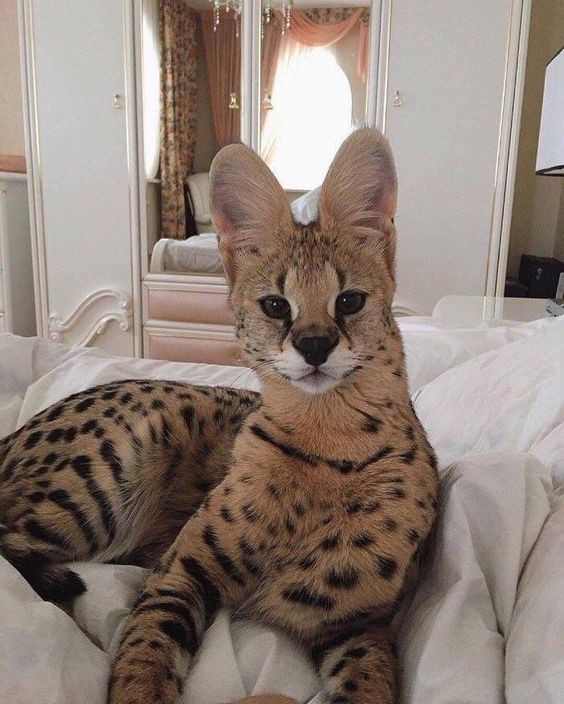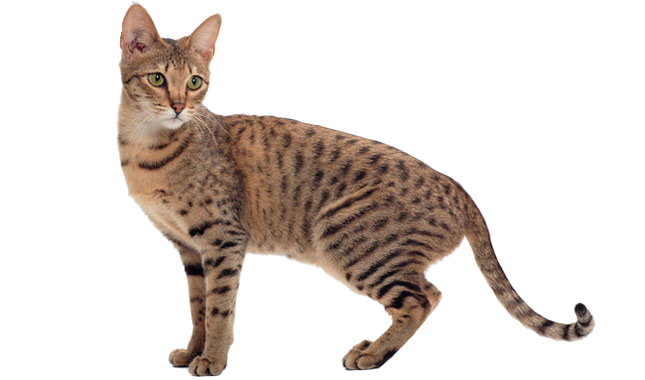
Savannah
USD $6,000-$20,000 Price Avg.
Large, Largest
Size
No
Lap Cat
17 to 20 years
Lifespan
Breed Information
| Popularity/Rank | N/A |
|---|---|
| Name | Savannah |
| Other names | None |
| Origin | United States |
| Size | Large, Largest |
| Coat | Slightly coarse, Short |
| Lap Cat | No |
| Lifespan | 17 to 20 years |
| Temperament |
Adventurous, Curious, Intelligent, Loyal, Outgoing, Social, Affectionate 1. Adventurous The Savannah cat is an adventurer at heart. They are curious and inquisitive, always exploring their surroundings and looking for new things to do. They are also intelligent and quick-witted, able to figure out complex puzzles and problems. This combination of traits makes them the perfect companion for those who love to travel and explore the world. 2. Curious The Savannah cat is a naturally curious creature. They are always exploring their surroundings and looking for new things to learn about. This curiosity can sometimes get them into trouble, but it also makes them one of the most interesting and exciting pets you can have. 3. Intelligent The Savannah cat is an extremely intelligent breed. They are quick to learn new tricks and skills, and they have an excellent memory. This intelligence makes them great companions for those who want a pet that can keep up with them intellectually. 4. Loyal The Savannah cat is a loyal and devoted friend. They will bond closely with their family and will be loyal to them for life. This loyalty makes them great companions for those who want a pet that will always be by their side. |
| Weight | Female: 12 - 20 pounds, Male: 12 - 25 pounds |
| Colors | Black silver spotted tabby, Black smoke, Brown spotted tabby, Black |
| Kitten Prices |
USD $6,000-$20,000
A Savannah cat is a hybrid between a domestic cat and a serval, which is a wild African cat. The Savannah is a very unique and exotic looking cat that has become popular in recent years. They are known for their large size, long legs, and big ears. Savannah cats are also very intelligent and active, which makes them interesting pets. The price of a Savannah kitten can vary greatly depending on the breeder or the reputation of the breeder. Some breeders may charge as little as $6,000 for a kitten, while others may charge upwards of $20,000. The price also depends on the quality of the kitten. A higher quality kitten from a reputable breeder is going to cost more than a lower quality kitten from an unknown breeder. The price of a Savannah kitten can have an impact on the parents of the kitten. If the parents are from high quality lines, they will likely be more expensive than if they were from lower quality lines. The price can also impact the quality of the kittens. If the parents are from high quality lines, the kittens are more likely to be healthy and have fewer genetic defects. However, if the parents are from lower quality lines, the kittens may be less healthy and have more genetic defects. Choosing a Savannah cat can be a difficult decision because of the wide range in prices. It is important to do your research and find a reputable breeder before making your purchase. It is also important to consider how much you are willing to spend on your new pet. |
Breed Characteristics
| Adaptability | |
|---|---|
| Affection Level | |
| Child Friendly | |
| Dog Friendly | |
| Energy Level | |
| Grooming | |
| Health Issues |
Feline leukemia, feline infectious peritonitis, feline immunodeficiency virus, feline infectious anemia, feline infectious rhinotracheitis, feline calicivirus Is Savannah cat Hypoallergenic? There is no definitive answer to this question as everyone's allergies are different. Some people may find that they are not allergic to Savannah cats, while others may find that they are. The best way to determine if you are allergic to a Savannah cat is to spend time around one and see if you have any reaction. Feline leukemia is a serious viral infection that can cause a number of health problems in cats, including cancer. There is no cure for feline leukemia, and it is fatal in most cases. Feline infectious peritonitis is a serious viral infection that affects the lining of the abdomen and can be fatal. Feline immunodeficiency virus is a virus that attacks the immune system and can lead to a number of health problems, including cancer. There is no cure for feline immunodeficiency virus, and it is fatal in most cases. Feline infectious anemia is a serious viral infection that can cause anemia and can be fatal. Feline infectious rhinotracheitis is a serious viral infection that affects the respiratory system and can be fatal. Feline calicivirus is a virus that can cause a number of health problems, including respiratory disease, oral ulcers, and fever. It is important to get your cat vaccinated against feline calicivirus. |
| Intelligence | |
| Shedding | |
| Social Needs | |
| Stranger Friendly | |
| Vocalization | |
| Health Care |
The Savannah cat is a hybrid cat breed. It is a cross between a domestic cat and a serval, a wild African cat. Savannah cats are tall and have long legs. They are also very active and playful. Because of their wild heritage, Savannah cats require special care when it comes to their health.
Savannah cats are prone to certain health problems, such as heart disease, kidney disease, and cancer. They also have a higher risk of developing obesity and diabetes. Therefore, it is important to work with a veterinarian who is familiar with the Savannah cat breed. There are some things that you can do to help keep your Savannah cat healthy. First, make sure that they are getting enough exercise. Secondly, feed them a high-quality diet that is rich in protein and low in carbohydrates. Finally, have them checked by a veterinarian on a regular basis. By following these simple tips, you can help your Savannah cat live a long and healthy life. |
History
The Savannah cat is a domestic cat breed that was developed to give the appearance of an exotic wildcat with a gentle domestic temperament. The original cross was between a serval, an African wildcat, and a Siamese domestic cat. This first generation is called an F1 and is considered the foundation of the Savannah breed.
The Savannah almost went extinct in the late 1980s due to a lack of interest from breeders. In 1986, only six Savannahs were known to exist. However, one breeder, Joyce Sroufe, continued to work with the cats and eventually revived the breed. The Savannah became popular in the early 2000s and is now recognized by several cat registries.
The ancestry of the Savannah can be traced back to Africa where the serval, a wildcat species, still roams today. The serval was first brought to America in the 1960s by zoos for breeding purposes. In 1981, Judee Frank crossed a male serval with a Siamese domestic cat which produced one female kitten named Savannah. Frank later sold this kitten to Patrick Kelley who continued working with subsequent generations of Serval-Siamese crosses until he eventually created the modern-day Savannah breed.
The International Cat Association (TICA) was the first registry to recognize the Savannah as a new breed in 2001 followed by The Cat Fanciers Association (CFA) in 2012.
Description
The Savannah cat is a hybrid cat breed. It is a cross between a domestic cat and the African Serval. The Savannah is the largest of the domestic cats. They can weigh between 15 to 25 pounds. The males are usually larger than the females. The Savannah has large ears, long legs, and a long neck. They are also very agile and can jump very high.
The lifespan of a Savannah cat is about 12 to 20 years. The size of a Savannah cat depends on its generation. F1 (first generation) Savannahs are usually larger than F2 (second generation) and so on. The weight of a Savannah cat also depends on its generation; F1s are usually heavier than F2s, etc. There are many colors of Savannah cats, but the most common are brown with black spots (called "brown spotted"), silver with black spots ("silver spotted"), and black with no spots ("solid black").
The personality of a Savannah cat can vary depending on its individual personality, but they are generally considered to be very active, playful, curious, and intelligent cats. They are also known for being very loyal to their owners and forming strong bonds with them. Many people say that owning a Savannah is like having a dog as well as a cat!
Savannah cats can be friendly with other cats, dogs, children, and other animals if they are raised with them or introduced to them at an early age. However, they may not be as tolerant of other animals if they do not know them well or have not been around them much. It is important to socialize your Savannah cat from an early age if you want them to be comfortable around other animals later in life.
The temperament of a Savannah cat can vary depending on its individual personality but they are generally considered to be active, playful, curious, and intelligent cats. They are also known for being loyal to their owners and forming strong bonds with them. Many people say that owning a Savannah is like having a dog as well as a cat!
The health of a Savannah cat depends on several factors including diet, exercise, genetics, and environment. A healthy diet for aSavannah should include high-quality protein sources such as chicken or turkey , as well as plenty of fresh fruits and vegetables . Exercise is important for all cats , but it is especially important for active breeds like theSavannah . A good way to provide exercise for yourSavannahis by investing in some climbing toys or scratching posts . Genetics playa role in the health of any animal , but it is especially important to consider when choosinga purebredcat like theSavannah . Make sure you do your research on the breeder before purchasing your kitten ,and ask about any health problems that may run in their family line . The environment in which yourSavannah lives can also affect their health ; make sure they have access to plentyof fresh air , sunlight ,and clean water .
The adaptability level of theSavannahcat is high;theyare abletoadjustto many different typesof homesand families . Oneof the benefitsof owningaSavannahasapetis thattheyare less likelythanotherbreedsto sufferfrom allergiesor respiratoryproblems becausetheyhavefewerfelthalergensthanmostdomesticcats .




